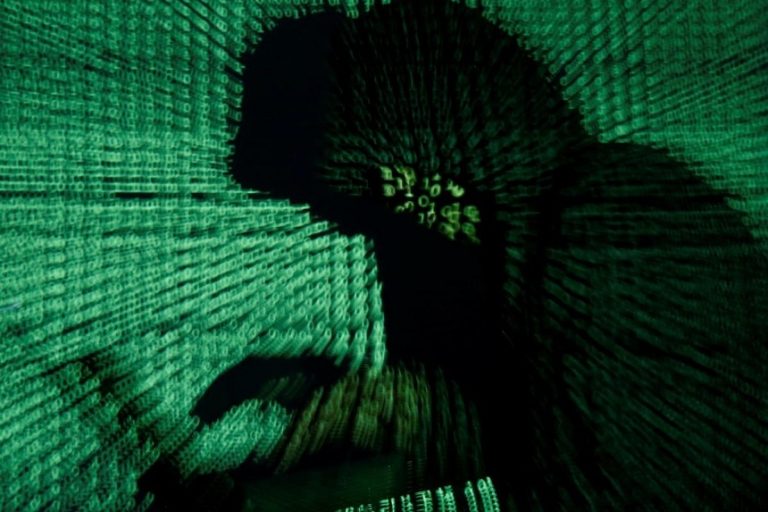
Similar Posts

WASHINGTON – The mastermind behind one of the biggest-ever Bitcoin heists was ordered to serve five years in prison for conspiring with his social-media rapper wife to launder money he stole by hacking into the Bitfinex exchange and grabbing cryptoassets now worth billions of dollars.
Ilya “Dutch” Lichtenstein was sentenced in Washington on Nov 14, after he and his wife, Heather Morgan, pleaded guilty last year in a scheme to hide proceeds from the 2016 hack. Morgan, known as “Razzlekhan” in her rap videos, will be sentenced Nov 18. The government recommended an 18-month sentence for her.
Lichtenstein, 37, faced as long as 20 years behind bars. But the government cited his substantial assistance that “has benefited numerous investigations.” The Bitfinex hack resulted in the theft of 119,754 Bitcoin worth about US$71 million (S$23 million) at the time. But since then, the token has surged from US$580 in 2016 to more than US$90,000 this week, boosting the value of the assets to billions.
“This is so massive, it is not comparable to other crypto crimes” based on its scale and complexity, US District Judge Colleen Kollar-Kotelly said before sentencing. Lichtenstein carried out his scheme over several years, which undermines defense claims that his actions were “impulsive,” the judge said.
Lichtenstein, a “highly skilled computer expert,” used several hacking techniques to gain access to the Bitfinex network, and then, in August 2016, fraudulently authorised more than 2,000 transactions to move Bitcoin to a cryptocurrency wallet he controlled, the government said.
He and his wife used sophisticated and meticulous money-laundering techniques to hide the stolen proceeds, including setting up accounts under fictitious identities, moving funds in small amounts, and breaking up the trail of transactions by depositing and withdrawing funds from crypto exchanges and darknet markets. They bought nonfungible tokens, gold and Walmart gift cards, according to the government.
Lichtenstein “became one of the greatest money launderers that the government has encountered in the cryptocurrency space,” prosecutors wrote in an October sentencing memo. “If the defendant were to take what he has learned from this prosecution and incorporate it into a future money laundering scheme, he would be even better-equipped to conceal his activity while monetizing his crimes,” they wrote.
Since his plea last year, Lichtenstein has assisted the government in other criminal cases, including as a government witness in a money-laundering trial involving a mixing service called Bitcoin Fog.
Other hacks
While Lichtenstein had no official criminal history before his arrest in 2022, the Bitfinex hack wasn’t his first, the government said. As a juvenile, he experimented with hacking and financial fraud, and around 2015, he illegally transferred a small amount of PayCoin, an alternative form of virtual currency, prosecutors said. The following year, he stole about US$200,000 from a virtual currency exchange, the government said.
But he also worked in legitimate businesses. While in college, Lichtenstein ran a digital marketing agency from his dorm, and after graduation, a software company he co-founded grew to 30 employees, the government said.
“His decision to use his skills for criminal ends is thus particularly disappointing, but it gives hope for continued successful rehabilitation,” prosecutors said in the sentencing memo.
Morgan attended her husband’s sentencing, along with Lichtenstein’s family. Lichtenstein expressed remorse to the judge and pledged that he would use his skills to help with cybersecurity. “I can make a real difference in the fight against cybercrime,” he said.
He asked that his wife avoid prison time. “Heather is only involved in this case because of me,” he said. BLOOMBERG

HELSINKI – A fibre optic communications cable linking Finland and Germany along the seabed has stopped working and may have been severed by an outside force, Finnish state-controlled cyber security and telecoms network company Cinia said on Monday.
The 1,200 km (745 miles) C-Lion1 cable running through the Baltic Sea from Finland’s capital Helsinki to the German port of Rostock malfunctioned just after 0200 GMT, the company said.
The sudden outage implied that the cable was completely severed by an outside force, although a physical inspection has not yet been conducted, Cinia’s Chief Executive Ari-Jussi Knaapila told a press conference.
The damage occurred near the southern tip of Sweden’s Oland island and could typically take between five and 15 days to repair, he added.
Cinia said it was working with authorities to investigate the incident.
Last year a subsea gas pipeline and several telecoms cables running along the bottom of the Baltic Sea were severely damaged in an incident raising alarm bells in the region.
Finnish police investigating the 2023 case have named a Chinese container ship believed to have dragged its anchor as a prime suspect, but have not said whether the damage was believed to be accidental or done with intention.
In 2022 the Nord Stream gas pipelines linking Russia to Germany in the Baltic Sea were destroyed by explosions in a case that remains under investigation by German authorities. REUTERS

WASHINGTON – Russian hackers are going after US government officials, defence workers and others in a new email phishing campaign targeting thousands of people, according to Microsoft Corp.
The hackers have sent “a series of highly targeted spearphishing emails” to thousands of people in more than 100 organisations since Oct 22, according to a blog post from Microsoft Threat Intelligence published on Oct 29.
The latest campaign will add to mounting concerns over US failures to outwit suspected Russian and Chinese hackers.
The FBI said on Oct 25 it is investigating unauthorised access by Chinese state-affiliated hackers targeting the commercial telecommunications sector.
In some of the emails that were part of the latest campaign, the senders impersonated Microsoft employees, according to the blog.
Spearphishing involves sending tailored emails to individuals, including links to malicious websites that can then steal information.
It wasn’t immediately clear how many of the attacks, if any, were successful.
Microsoft has said the attacks are perpetrated by a sophisticated Russian nation-state group it calls Midnight Blizzard, which US and UK governments have connected to the SVR, the Russian foreign intelligence service.
The company said in January that the group attacked its corporate systems, getting into a “small number” of email accounts, including senior leadership and employees who work in cybersecurity and legal.
In April, US federal agencies were ordered to analyse emails, reset compromised credentials and work to secure Microsoft accounts.
At the time, the Cybersecurity and Infrastructure Security Agency (Cisa) said the incident represented a “grave and unacceptable risk” to agencies, according to the April directive.
Cisa and US State Department didn’t immediately respond to requests for comment.
The Russian Embassy in Washington didn’t immediately respond to a request for comment. BLOOMBERG

WASHINGTON – Chinese hackers who tapped into Verizon’s system targeted phones used by Republican presidential candidate Donald Trump and his running mate JD Vance, the New York Times reported on Oct 25, citing people familiar with the matter.
The newspaper said investigators were working to determine what communications, if any, were taken.
The Trump campaign was made aware this week that Trump and Mr Vance were among a number of people inside and outside of government whose phone numbers were targeted through the infiltration of Verizon phone systems, it added.
The campaign did not immediately respond to a request for comment.
The Trump campaign was hacked earlier this year. The US Justice Department charged three members of Iran’s Revolutionary Guards Corps with the hack and trying to disrupt the Nov 5 election. REUTERS

An Iranian hacking group is actively scouting U.S. election-related websites and American media outlets as Election Day nears, with activity suggesting preparations for more “direct influence operations,” according to a Microsoft blog published on Wednesday.
The hackers – dubbed Cotton Sandstorm by Microsoft and linked to Iran’s Islamic Revolutionary Guard Corps – performed reconnaissance and limited probing of multiple “election-related websites” in several unnamed battleground states, the report said. In May, they also scanned an unidentified U.S. news outlet to understand its vulnerabilities.
U.S. Vice President Kamala Harris, the Democratic candidate, faces Republican rival Donald Trump in the Nov. 5 presidential election, which polls suggest is an extremely tight race.
“Cotton Sandstorm will increase its activity as the election nears given the group’s operational tempo and history of election interference,” researchers wrote. The development is particularly concerning because of the group’s past efforts, they said.
A spokesperson for Iran’s mission to the United Nations said that “such allegations are fundamentally unfounded, and wholly inadmissible.”
“Iran neither has any motive nor intent to interfere in the U.S. election,” the spokesperson said.
In 2020, Cotton Sandstorm launched a different cyber-enabled influence operation shortly before the last presidential election, according to U.S. officials. Posing as the right-wing “Proud Boys,” the hackers sent thousands of emails to Florida residents, threatening them to “vote for Trump or else!”
The group also released a video on social media, purporting to come from activist hackers, where they showed them probing an election system. While that operation never affected individual voting systems, the goal was to cause chaos, confusion and doubt, senior U.S. officials said at the time.
Following the 2020 election, Cotton Sandstorm also ran a separate operation that encouraged violence against U.S. election officials who had denied claims of widespread voter fraud, Microsoft said.
The Office of the Director of National Intelligence, which is coordinating the U.S. federal effort to protect the election from foreign influence, referred Reuters to a past statement that said: “Foreign actors — particularly Russia, Iran, and China — remain intent on fanning divisive narratives to divide Americans and undermine Americans’ confidence in the U.S. democratic system.” REUTERS

“Ofcom to Detail Action Required from Social Media Companies Over Illegal Content – December Deadline Looming for Compliance”
LONDON – Britain’s media regulator Ofcom said on Oct 17 that it would detail what action it expected social media companies to take over illegal content on their platforms in December, saying it expected swift action or they would face consequences.
Ofcom, which is responsible for implementing the government’s Online Safety Bill, said the platforms would have three months to complete their own illegal harms risk assessments after the publication of its demands.
“The time for talk is over,” Ofcom’s Chief Executive Melanie Dawes said on Oct 17. “From December, tech firms will be legally required to start taking action, meaning 2025 will be a pivotal year in creating a safer life online.”
She said the regulator had already seen positive changes, but expectations were going to be high.
“We’ll be coming down hard on those who fall short,” she said.
Ofcom said better protections had already been introduced by Meta, the owner of Instagram and Facebook, and Snapchat which have brought in changes to help prevent children being contacted by strangers.
Britain’s new online safety regime, which became law last year, requires social media companies to tackle the causes of harm, particularly for children, by making their services safer.
If companies do not comply with the new law, they could face significant fines and, in the most serious cases, their services could be blocked in Britain. REUTERS
